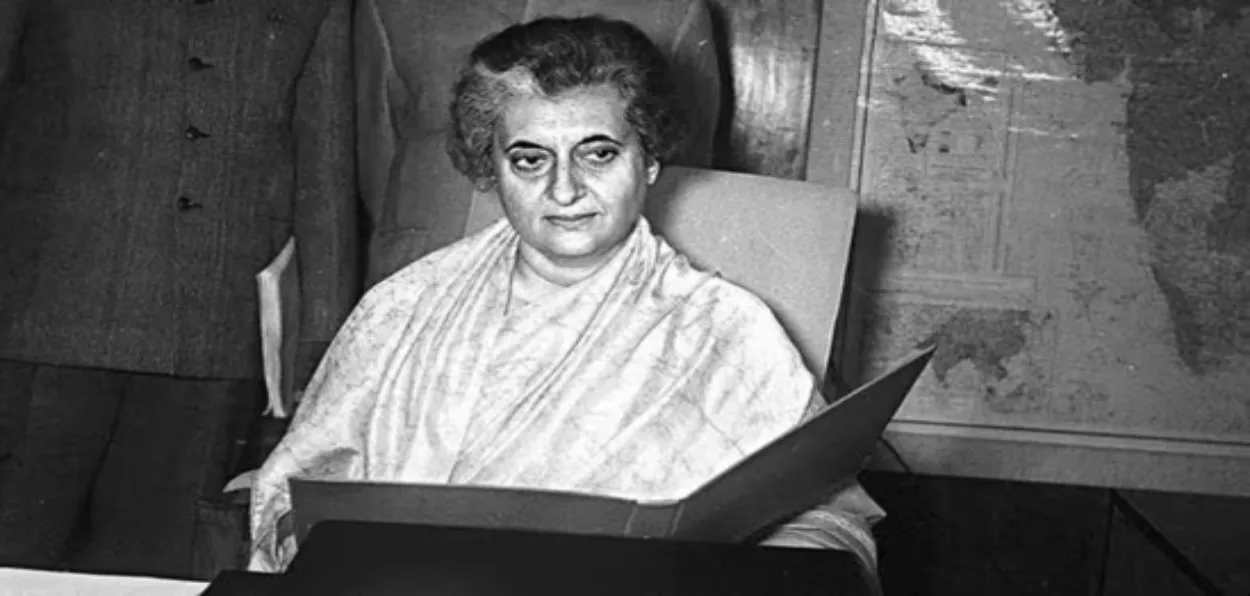
 Faiyaz Ahmad Fayzi
Faiyaz Ahmad Fayzi
On 31 October, people remembered Indira Gandhi, the first woman Prime Minister of India who ruled for a long time. She was also famous for her extraordinary and bold decisions. However, much like her father Jawaharlal Nehru, she considered the Muslim community a homogeneous unit and maintained silence on addressing the issue of the Pasmanda community.
Far from accepting the problem of casteism in Muslim society, she kept denying their discrimination through her activities. Like Nehru, Indira Gandhi also preferred her policy of Ashraaf (Muslims who consider themselves superior and have roots outside India) appeasement when it came to addressing Muslim issues. Also, she depended on the Ashraaf leaders and orthodox Ashraaf Ulema (clerics) for opinion and consultation on Muslim issues.
As part of social reforms, the Indira Gandhi government wanted to amend the adoption laws when Ashraaf politicians, intellectuals, and Ulema opposed it. They got together and formed the All India Muslim Personal Law Board (AIMPLB), a body of religious fanatics with a medieval mindset - anti-women and anti-Pasmanda. AIMPLB also recognizes “racial and caste discrimination in Islam,” as it is written in the “Introduction”.
The introduction begins with a falsehood. It says "When the government tried to nullify the Shari'a law through legislation, a comprehensive plan to wipe out all non-Islamic rituals and customs (civilization and culture) from the Muslim society was formed". (This seems to be a ploy to alienate the indigenous Pasmanda from their civilizational roots and culture in the name of Islam.)
Indiraji, surrounded by Ashraaf as she was, not only abandoned secularism and withdrew from bringing the law, but also gave the opportunity to AIMPLB to emerge as a formal representative assembly of Muslims. In this matter, Indira did not make even the slightest effort to know about how the Pasmanda side felt.
She left the poor Pasmanda community at the mercy of the self-righteous Ashraaf of the medieval and fundamentalist mindset of this organisation. Thus, knowingly or unknowingly, she left the Pasmanda community in the abyss of degradation.
To appease the Ashraafs, Indira Gandhi brought a law in 1981 and restored the minority status of Aligarh Muslim University by overturning the 1967 decision of the Supreme Court.
It is well known that despite AMU having minority status, the entry of Pasmanda community as its academic, non-academic staff and students is almost prohibited as they are not entitled to reservations as part of social justice provided by the Constitution. Had the Indira Gandhi Government not given the minority status to AMU, the reservation of social justice provided by the Constitution would have been applicable there. This, in turn, could have benefitted the Pasmanda community which comes under the OBC and ST categories.
Likewise, the Indian Islamic Cultural Centre (IICC) can also be seen as another example of Indira Gandhi's Muslim (Ashraaf) appeasement. It was conceptualised in 1980, to coincide with 1400 anniversary of Islam.
On the recommendation of a committee headed by Vice President Justice Hidayatullah Khan, Indira Gandhi’s government registered the society in 1981 and allotted it about 72,000 square feet of state land in the posh Lutyen’s Zone. She laid its foundation stone on 24 August 1984 and dedicated it to the dominant Ashraaf class in the name of Islam and Muslims.
Later this centre proved to be a mini-Pakistan as it promoted Muslim exclusivity. History tells us that it was due to such Muslim exclusivity, that Pakistan was created. Today, this centre has turned into a socializing and enjoyment for the Ashraaf Muslims. A large number of its members live abroad. Although some Hindus are also its members, they are like the Hindu society in Pakistan.
This was a classic example of the Ashraaf appeasement by Indira. If that is not true, why did she not build the Indian Buddhist Cultural Centre, Indian Jain Cultural Centre, Indian Parsi Cultural Centre, or Indian Jewish Cultural Centre?
From time to time, the Pasmanda movement has been demanding that this Indian Islamic Cultural Centre be converted into a world-class hospital in the name of Asim Bihari, the father of the first Pasmanda movement.
Indira Gandhi did not empathize with women suffering from the scourge of triple talaq. This social reform was needed to ameliorate the lot of lakhs of Pasmanda women. Indira Gandhi shirked from responsibility for social reform among Muslims. This was not appropriate for the Prime Minister of a secular country. The main reason for this seems to be Indira Gandhi's excessive dependence on Ashraaf leaders.
(The Author is a Translator, Columnist, Media Panelist, Socio-Pasmanda Activist, and Medical Doctor by profession. These are his views)
